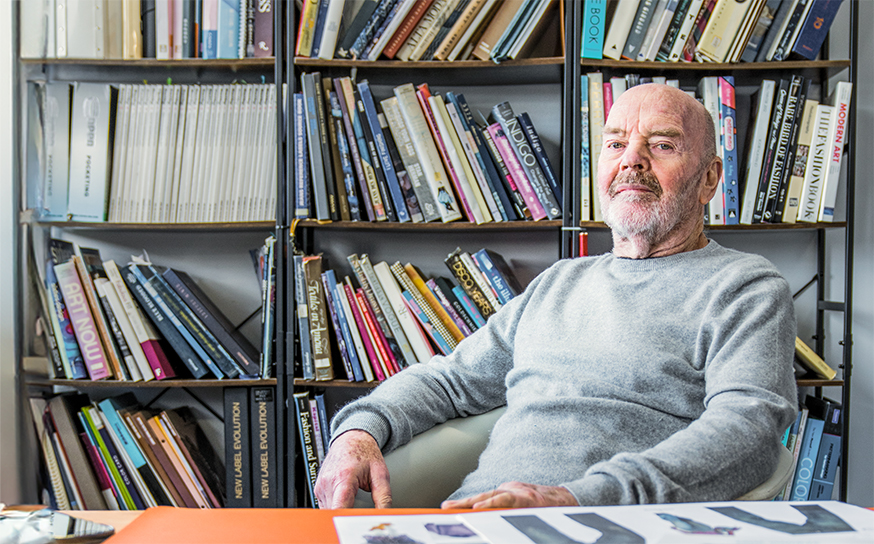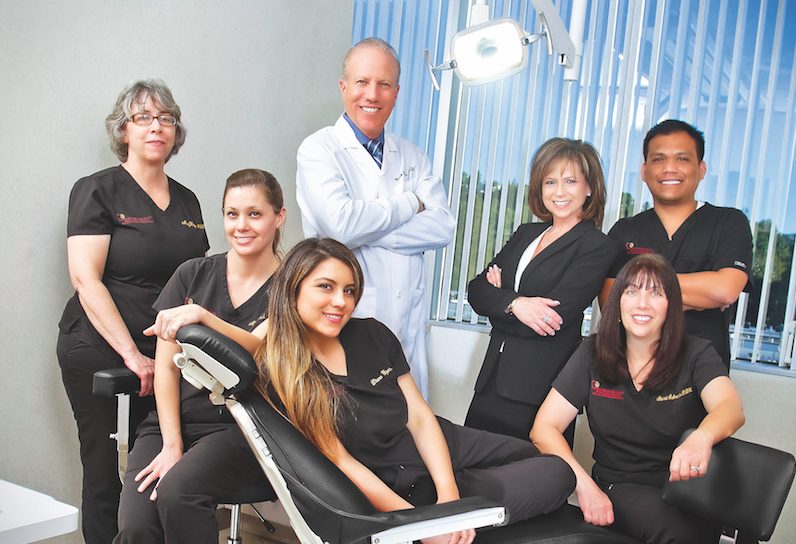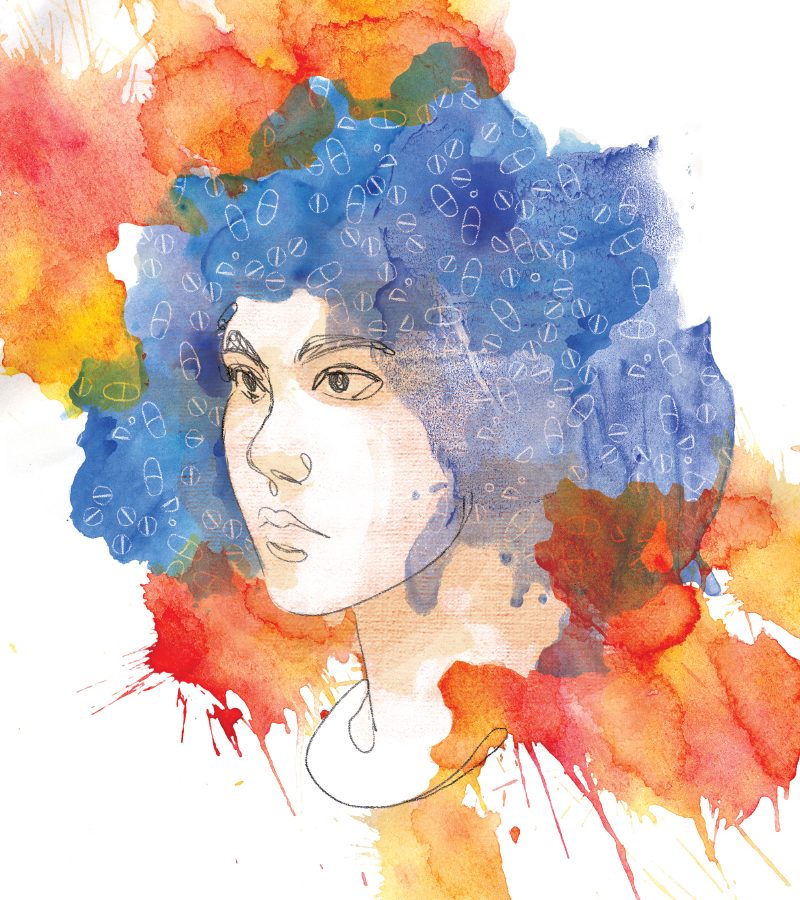
The Need for Speed
When a child is diagnosed with adhd, we’re often quick to reach for a stimulant. But should we be proceeding with caution?
-
CategoryPeople
-
Written byDiane Haithman
When you’re a second-grader and your parents give you a pill, you pop it like a Flintstones vitamin. After all, it comes from the two people you trust more than anyone in the world—and they got it from a doctor.
That’s what Carter, 23, believed when she was a student at a highly competitive, private school in the South Bay area—a young girl whose wealthy, successful and well-intentioned parents wanted to ensure she would grow up to enjoy the same success they’d experienced. Her parents as well as her teachers believed she couldn’t handle school without Adderall.
Carter, who asked that her last name not be used, still isn’t sure whether her childhood problem was Attention Deficit Hyperactivity Disorder—ADHD—or if she was just an impatient, high-energy kid who couldn’t seem to stay in her chair. But she does know that Adderall, one of several drugs prescribed for ADHD, set her on a self-destructive path.
“I was given a prescription based on my teacher saying, ‘She can’t sit still,’” Carter says now. “My parents took me to a psychiatrist and in two seconds she had written me a ‘scrip.’”
Carter continues: “I became familiar with taking a pill to succeed. And if you are taking that medication for a long period of time, you build up a tolerance. So I continued to have to increase the amount I was taking every day—and if I snorted it, it worked even better. Then I heard that cocaine was exactly like that, so why not try it?”
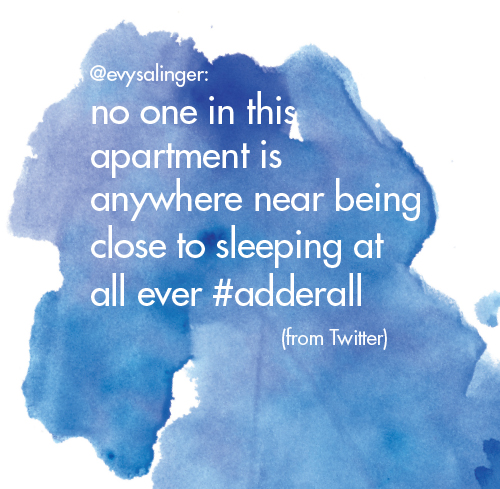
Epidemic or Over-Diagnosis?
Carter’s story represents an extreme case in which Adderall, on the market since 1995, became a gateway to an illegal narcotic drug. Certainly every child treated with Adderall or other prescription stimulants prescribed for ADHD (Ritalin, Concerta and Vyvanse are others) does not end up abusing cocaine.
Still, each year an increasing percentage of kids are diagnosed with ADHD. According to the most recent (2013) data from the Federal Centers for Disease Control and Prevention, nearly one in five high school-age boys and 11% of all school-age children has received a medical diagnosis of ADHD at some point in their lives. The figure represents a 16% increase since 2007 and a 41% increase over the preceding decade.
The same study says two-thirds of those children have been treated with stimulants. (To avoid repetition, assume that when Adderall is mentioned we are talking about the spectrum of prescription medications for ADHD).
Some experts blast the psychiatric industry for “selling” the ADHD diagnosis along with the drugs to treat it. Whether or not you agree, increasing ADHD diagnoses mean more parents are facing a difficult choice: Is Adderall really the answer?
Mental health professionals interviewed for this story agree only 3% to 7% of American children actually have ADHD despite the rate of diagnosis. Conflicting data leave many well-meaning parents feeling lost in the dark.
More boys than girls are diagnosed with ADHD but that does not necessarily mean fewer girls struggle with the disorder. Tarzana child and adolescent psychiatrist Sahar Douek explains that ADHD boys more often exhibit hyperactive symptoms, while girls might just be inattentive—easier for a teacher to tolerate or simply overlook than a disruptive boy. “Girls may be under-diagnosed,” she says.
Why They Work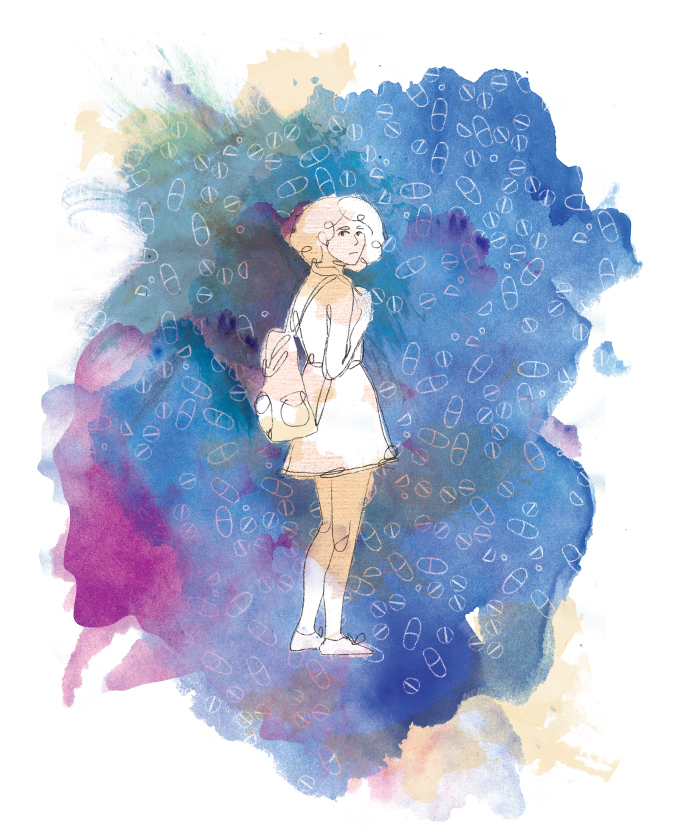
Let’s back up for a second. If an ADHD kid is hyperactive, unfocused and impulsive, wouldn’t a stimulant makes things worse?
Dr. Douek says the easiest way to think about it is that those with ADHD have a lower-than-normal level of dopamine, a neurotransmitter that among other things, helps regulate concentration. For those kids, Adderall increases the ability to focus.
She cautions it’s easy to mistake other problems for ADHD. Anxiety, depression, borderline personality disorders, seizure disorders that may cause children to “blank out” for several seconds (mistaken for lapses in attention), fatigue from sleep apnea and autism are just a handful of problems that may present as ADHD.
Still, she adds that the potential for misdiagnosis should not deter parents from getting a correct diagnosis that may lead to appropriate treatment. “A kid who forgets to bring their assignments to school might not need medication,” she says. “But a child who has a more severe difficulty paying attention—do you want the kid to suffer?”
When They Work
Psychologist Moe Gelbart, executive director of the Thelma McMillen Center for Alcohol and Drug Treatment at Torrance Memorial Hospital, says stimulants can work wonders when brain chemistry is the problem.
“The kid who can’t concentrate and read a page, all of a sudden he can read a book,” says Dr. Gelbart. He adds that doing better in school may improve self-esteem, breaking a “downward cycle” that can lead to depression. But he calls ADHD stimulants “powerful drugs” and calls their use a “risk-benefit analysis.”
Courtney Behrenhausen, director of educational support services for prestigious Campbell Hall School, calls treating ADHD with stimulant drugs a “very greyscale issue.” Dr. Behrenhausen has held this position for 14 years and served as a teacher and junior high dean at Campbell Hall for six years prior. She says she’s seen the full range of how Adderall can affect a student’s academic performance and social interaction.
“There are certainly some students for whom it is literally a miracle drug,” she says. “It makes their lives 100,000 times easier. It allows them to reach their academic potential, their personal potential. There are kids who are really lucky and don’t have a whole lot of side effects, and it just makes everything good … all the way to the other end where there are kids for whom it doesn’t work well and it has very negative physical or emotional effects. Some have to try a lot of different medications, and I’ve had students who just eventually couldn’t be medicated; it didn’t work for them. And everything in between.”
Child psychiatrist Marissa Caudill, who has offices in Westwood and in Encino, calls Adderall and similar meds “among the best in all of psychiatry” and believes most children can tolerate them with few side effects. The primary ones: appetite loss, headaches, insomnia and moodiness as the meds wear off. Adds Dr. Caudill: “It’s kind of a double-edged sword. The negatives are they might feel a little bit less like themselves, a little bit flat in their affects.”
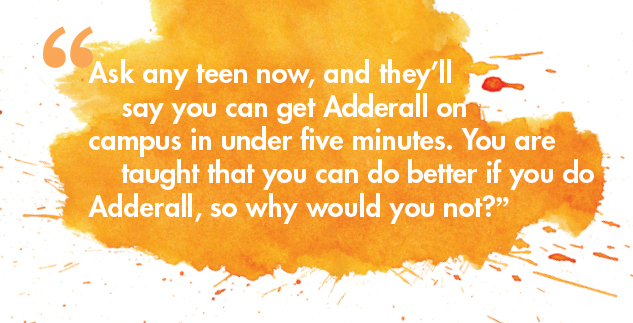
When They Don’t Work
For some kids, the side effects far outweigh the benefits. Rob and Danielle Fox of Encino began to see signs of ADHD in their son when he was about 9 years old. (His parents asked that his real name not be used to avoid the stigma of the diagnosis).
“He would leave the house in the morning, and two seconds later he’d come back because he’d forgotten his wallet,” says his father. “Then he’d go out and come back again. He’d forgotten his homework. Then it was his lunch. We’d write a list the night before of everything he had to take with him to school, and he’d forget to look at the list. It was constant. Nothing worked.”
Over the next six years the couple’s son was prescribed a variety of stimulants, including Adderall and Concerta. “All of them had awful side effects: dehydration, loss of appetite, headaches,” Rob recalls. “He wouldn’t eat all day and then he’d binge late at night.”
Adds mom Danielle: “Finally, he literally vomited and then passed out on the baseball field one day. It was a result of not eating all day and being dehydrated. It was horrible.”
Ultimately it was the Fox’s son who decided that stimulants were not for him. “Taking ADHD meds is essentially taking hard drugs,” the son now 17 years old, says. “Kids like myself feel pressured to take these meds by our parents and by our schools and the amount of work they require.”
Adds the teenager: “The meds made me extremely depressed. I always had a dry mouth, got extreme headaches . . . but I could work like a horse. It’s an unnatural pill that made my personality change too. The only thing positive it produced was a robot-like effect when I was studying.”
His parents supported his decision. “In the end, we’d rather manage than medicate our son,” Danielle says. Their son managed to “force myself to focus,” and his grades only dropped slightly without meds. Now he’s headed to college in Boston, where he plans to take a full course load as well as play baseball.
He vows he won’t return to meds to get him through it. “Nope, I want to avoid pharmaceutical products as much as I possibly can.”
Use vs. Abuse
Side effects are unique to each patient and no professional interviewed for this story suggests a cookie-cutter approach to a complex problem. But all agree that with or without side effects, Adderall lends itself to rampant abuse. Known as “the smart drug,” it can allow students without ADHD to study (or party) all night. The fact that it’s a prescription pill, not a street drug, creates the illusion of safety.
Dr. Caudill reports that one in five students with an Adderall prescription gets asked to share their pills. And they do. Says Carter: “Ask any teen now, and they’ll say you can get Adderall on campus in under five minutes. You are taught that you can do better if you do Adderall, so why would you not?”
So it feels good? “Absolutely it feels good. You feel like you are invincible,” Carter adds. While in school, she confesses she also got caught up in another dangerous trend, especially among girls: doing Adderall to stay thin.
Local psychiatrists say that savvy students look up the symptoms of ADHD on the internet and complain of the symptoms to get worried parents to take them to doctors to get the meds. “I’ve heard stories of all kinds—mothers who dragged their kids to convince the doctor their kid has ADHD so the mother could take ,” Dr. Gelbart says.
Changing the Scrip(t)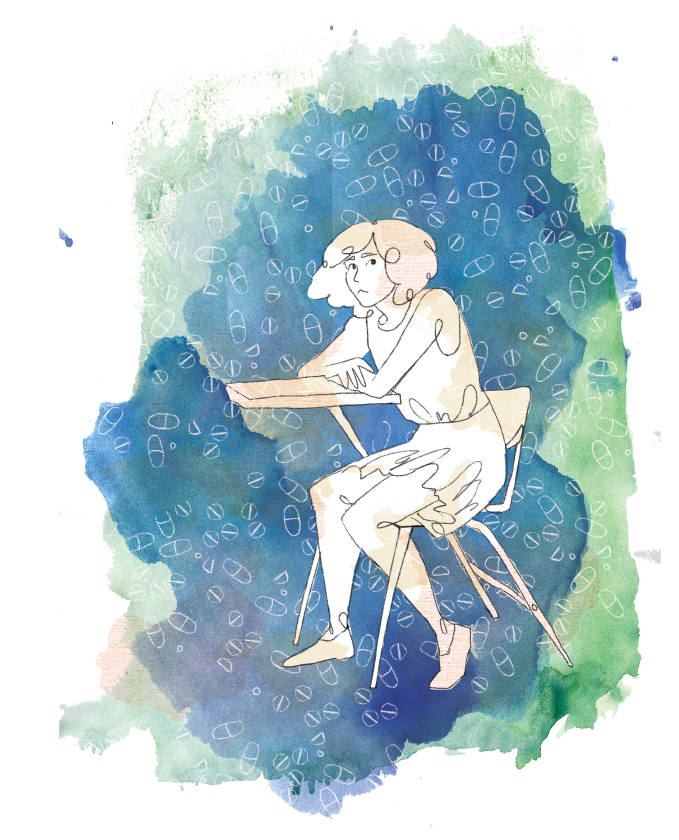
Sherman Oaks child and adolescent psychiatrist Kal Maniktala has seen stimulants result in improved school performance and more importantly, self-esteem. She points out that no medicine exists without potential side effects. But she finds herself worrying more about kids without ADHD who seem to need stimulants to meet excessive pre-college demands.
“I think we have to, as a society, really ask ourselves what we’re doing to kids and whether we should keep pushing them the way we are,” she says. “The bar keeps getting pushed up higher and higher.”
Jamison Monroe is founder and CEO of Newport Academy, which offers both a residential and outpatient therapy program. Newport provides holistic treatment for teen substance abuse and other mental health problems. The majority of the boys who arrive at the residential program are on ADHD stimulants and at check-in, the meds are all left at the door. The academy forbids the use of stimulants and offers alternative therapies for ADHD including changes like a sugar-free and caffeine-free, health-conscious diet; daily exercise; and nine hours of sleep each night.
“Our society continues to be more and more enamored of a quick fix,” Monroe says. “As a society, we’ve decided that it’s too expensive to change the system so we have to change the kid.” With stimulants, legal or illegal, “What goes up must come down,” Monroe adds.
One student who benefited from the academy’s approach is Carter, who transferred from an all-girls school to Newport Academy when she was 17. She says the organization “saved my life.” It also led to a career: She now works for Newport Academy doing clinical outreach.
Before Newport, Carter says, “nobody ever sat me down to teach me good study skills, or that those executive functioning skills could be taught. were always just the easier, softer solution. I think you have to have informed intervention. See if you can help your kid learn more study skills. Think outside the box.”
Architect May Sung Comes to The Rescue on a Studio City Reno Gone Wild
In the right hands…finally!





